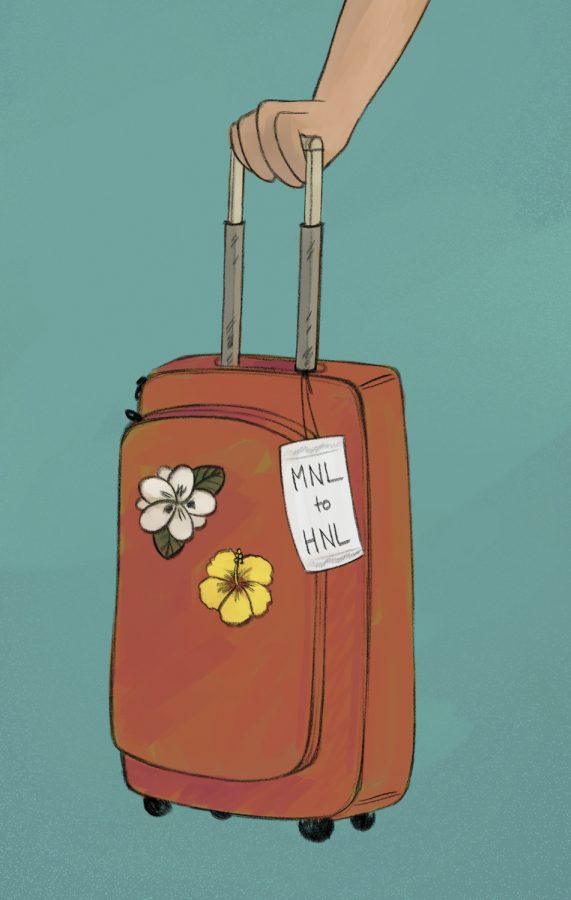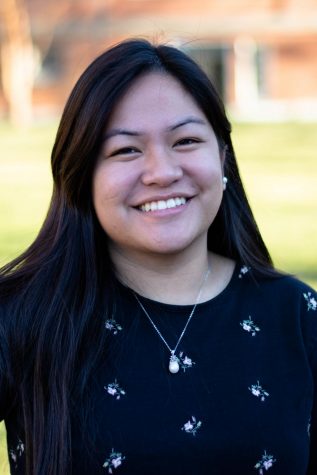Sakripisyo ng nanay ko: My mother’s sacrifice
Evergreen editor-in-chief reflects on what immigrant families leave behind for a better future
Making a new home in America means more than just leaving your country.
October 15, 2020
I was 8 years old when I first experienced what it felt like to be on an airplane.
I sat by the window, and my mom sat right next to me. I was doing OK until I felt the plane lift off. My stomach instantly dropped as if an anchor was dragging it down. I squeezed my mom’s left hand as tight as I could, hoping that it’d help ease the feeling I had.
The light from street lamps, taillights and buildings, became faint as the plane moved farther and farther away from my motherland and everything I had come to know.
I was born in Manila, Philippines, in a hospital I don’t remember. The branches of my family tree stretched throughout the country — I had relatives who lived in the city and others who lived in small, rural villages. I lived in the city, but I didn’t have an extravagant house.
My two older brothers and I spent the early days of our childhood in a duplex. The walls, floor and ceiling were made out of hard cement. The kitchen, in particular, had a rusty, aluminum roof — whenever it’d rain, it sounded like bullets were being shot.
The duplex had two bedrooms, a living room, dining area and kitchen. There was no garage, patio or backyard. There was only one bathroom, and all it had was a toilet, sink and a small faucet embedded on the wall.
There wasn’t a shower head, tub or even a bar to hang a shower curtain — when we had to rinse ourselves, we’d use a tabo to get water from a barrel that was about 3 feet tall.
My brothers and I were raised by our relatives, whether it’d be our grandma, uncles or aunties. We had a few yayas too, and I remember our last one, who goes by the name of Vivian. I still remember her to this day because she told me she wanted to name her daughter after me.
My dad died when I was young. I can’t pinpoint the exact age I lost him, but I vividly remember the day I watched his casket descend, placing him 6 feet under.
My mom, on the other hand, worked overseas. She worked on a cruise ship, which paid well – that was how my brothers and I were able to attend a private school. She’d come back home for a couple of months here and there, but there are times when I wish my mom was around more. I know she did it for a reason, though.
Things always happen for a reason.
Leaving the motherland was something I didn’t really reflect on until I grew older. I thought my mom wanted to move to the U.S. simply because she was tired of living in the Philippines. Little did I know, she did it for my brothers and I, just like any mother would’ve done for her kids.
It takes a certain kind of strength to move to an unfamiliar place. Uprooting oneself from a place of comfort isn’t some menial decision. My mom is one of the most selfless people I know — she left everything behind just so my brothers and I could have a better future.
Sacrificing something for the child’s or children’s benefit is a common narrative for most, if not all, immigrant families. Immigrants aren’t just people who want to reach the so-called American Dream — they have a certain kind of power that is incomparable.











